5. Christof or “The Creator” in The Truman Show
Academy Award nomination for Best Supporting Actor, winner of the Golden Globe for Best Supporting Actor
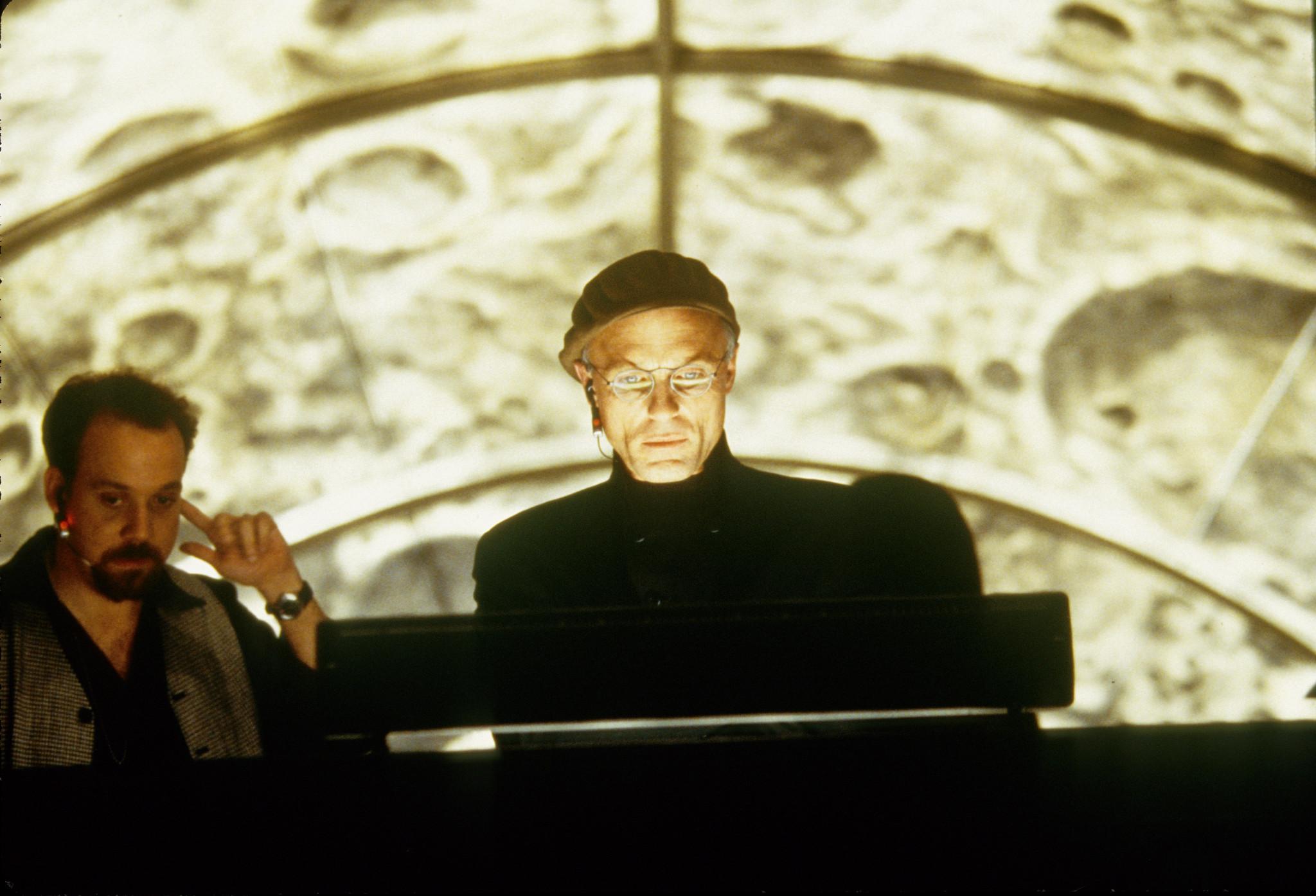
People remember “The Truman Show” fondly for it being Jim Carrey’s breakthrough into dramatic acting, and although the film is barely a drama, it is also barely a comedy and so one presumes this is a fair assessment. Just as this film brought Carrey’s dramatic potential into the limelight, it furthered Harris’s introduction to mainstream audiences with his surrounding Oscar buzz.
Subtlety is the key word to describe how Harris delivers Christof – the man who played God, a satirical representation of the most extreme director overruling Carrey’s utopian existence. With his face masked, a small speech that could come across as both heartwarming and utterly disturbing is delivered by Harris with perfection, with emotions delivered at precise and perfect moments to show both the dialogues comedic requirements and dramatic tone.
It’s somewhat strange to hear Harris describe with watery eyes, “I have been watching you your whole life…” and to deliver a tangent the most caring parent could only surmise.
What makes his performance special is how he establishes empathy for an utterly bizarre and improbable character; he seems real and he draws the desired comparisons between Christof and God with expert precision and subtlety. The actor does the work to draw deep philosophical thought from audiences; the idea of Plato’s cave comes to mind when studying this film, and it’s through the film’s expert delivery of dialogue from his impressive performers that this understanding can be achieved.
4. Remy Bressant in Gone Baby Gone
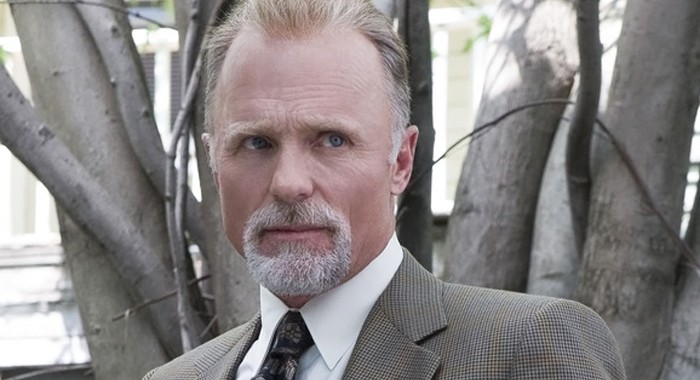
Another role whereupon Harris has utilized minor changes to his physicality; tanning and dyed white facial hair allowed him to be immediately recognizable as his distinguished character in this film. Ben Affleck’s directorial debut of Dennis Lehane’s masterful novel is a compelling study of its characters, disillusionment and children. Few films touch on the innocence of children and their manipulation with such potency; in modern times “Spotlight” comes to mind, but that particular film’s power is in its actors.
Slow and mediated, the film’s tension derives from its characters, all on the verge of explosion at certain times, and the film’s greatest moment is a heartbreaking monologue, delivered with such power by Harris at the closing of the film’s second act. “Kids don’t judge,” is the line that resonates with me, delivered in drunken slurs as he defends himself from judgment that he may only feel because of his own guilt.
His character is intimidating, with dead eyes and a lackluster smirking mask, featuring weariness and exasperation that seep into him as the film wears itself out. Harris portrays a man who hunts his monsters so ferociously that he himself is in fear of becoming one. And he delivers it with perfection.
3. Dave Moss in Glengarry Glen Ross
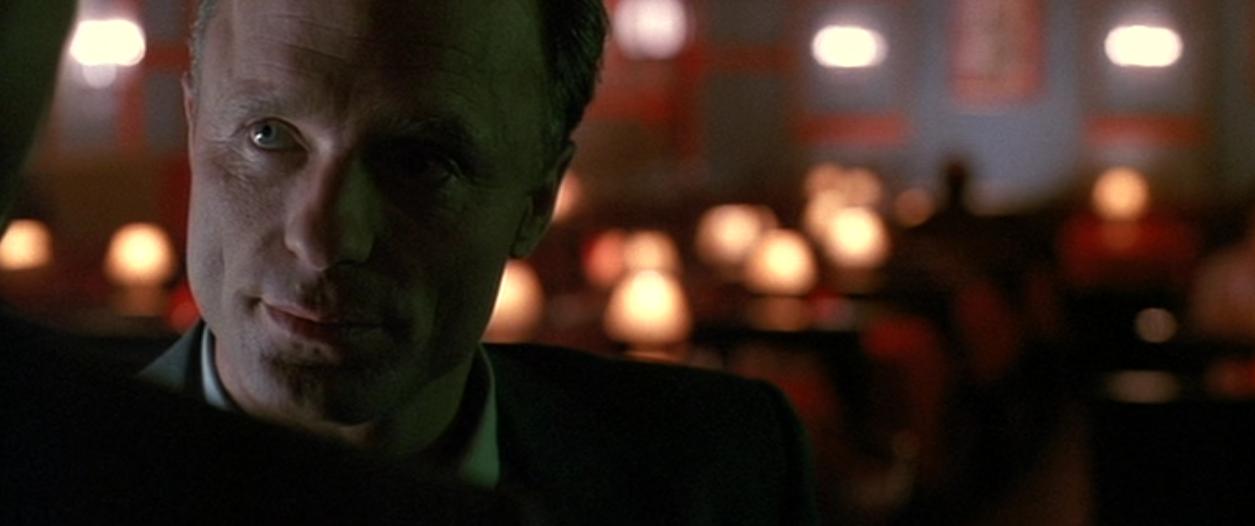
This film is a masterclass of acting, and every cinephile has heard of its cast line-up in awe at one point in their life. It features Al Pacino, Jack Lemmon, Kevin Spacey, Alec Baldwin, Alan Arkin, Jonathan Pryce, and Ed Harris at his most verbally corrosive. The dialogue is incredible, and it’s perhaps one of the best dialogue-driven films of the 90s and is not short on its swearing. Pacino said the cast called it fondly “Death of a F**king Salesman” due to its sheer amount of vile language.
Its strengths are numerous, particularly its colourful characters who are all on the same desperate hill of sales with Pacino at the top of his game, all the way to Lemmon with no sales and desperate desire in his eyes. Harris sits closer to Lemmon than Pacino and his bitterness is terrifying. Recall he and Arkin discussing but not discussing the robbery of the Glengarry leads, all speaking in confusing tenses, what if’s, and fearful yet eager anticipation.
Then focus on his argument with Pacino following his bitter confrontation with a police officer where fury is palpable, dominating the space and overriding all other performances. Even for the actor known for his bellowing vocals in “Scarface”, this is a feat. The fact it doesn’t step into overacting is a testament to the screenplay, but more so to the spectacular chemistry of the onscreen performers.
It’s an unforgettable film with every actor having a highlight for their career and for Harris, it is proof he can stand up to the very best and even steal their spotlight.
2. Richard Brown in The Hours
Academy Award nomination Best Supporting Actor, Golden Globe nomination Best Supporting Actor
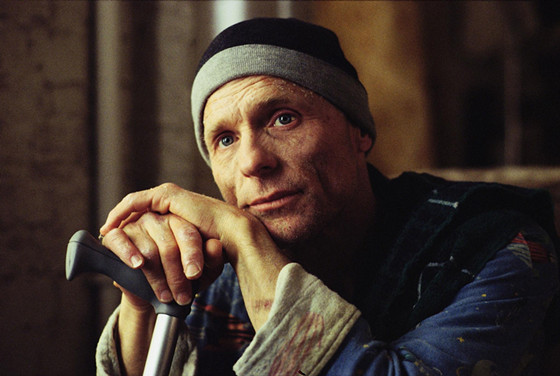
This is a heartbreaking film, and at the crux of its heart-wrenching narrative is one climactic scene between Harris and Meryl Streep. In the previous entry, Harris proved he could stand against the best actors in the business and now his chemistry with the most iconic actress of modern cinema is just as palpable.
He plays a writer, dying of AIDS, who sees that his only reason to live is to appease the one he loves, but he wants to die. And he wants her permission to do so. He plays a man, triumphant in his defeat, suffering but never letting it show. You can almost physically see his pride; he wants to die on his own terms and he’s giving up the fight.
Perhaps what makes him so tragic and so memorable is just how he refuses to break his bravado; even as he attempts to die (whether he succeeds I won’t say), how much he loves her prevents him from revealing defeat in her face. When he smiles, he hints at his pain, and his dialogue is etched with it. He wants to die and he needs her to let him go. That is what their relationship is about and watching it unfold is one of the most impactful relationships in recent cinema.
1. Jackson Pollock in Pollock
Academy Award nomination for Best Actor
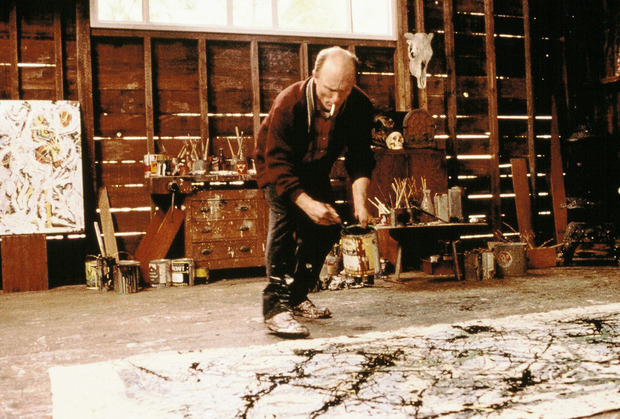
So rarely does Harris feature as a lead actor but when he does, it is often a near-perfect performance. Jackson Pollock was a unique and bizarre artist, a lead in the abstract expressionist movement and played to perfection by Harris.
Harris embodies this introverted and tormented painter, whose desire to express himself is constantly conflicted with his inability to integrate with the world. He paints and hides, hiding within his craft so as to avoid others. Harris’ performance is found within his nuances, his definitive character traits garnered by his thorough study of his character, and his ability to stay in character the entire shoot. Never has Harris played a part so vulnerable, so fragile or with such finesse.
He is transformational as Jackson Pollock, learning all he could to paint imitation works of Pollock’s pieces and watching him paint the man’s iconic “inspiration mosaic”, it’s shocking to realize he actually painted an imitation work with such likeness.
Despite the film winning the Oscar for Best Supporting Actress, it received very little recognition from world audiences, seen as hidden away in the face of its competition that year. However, when Harris finally receives the recognition he deserves, this film will stand as a comparative template for all the other work he will create.